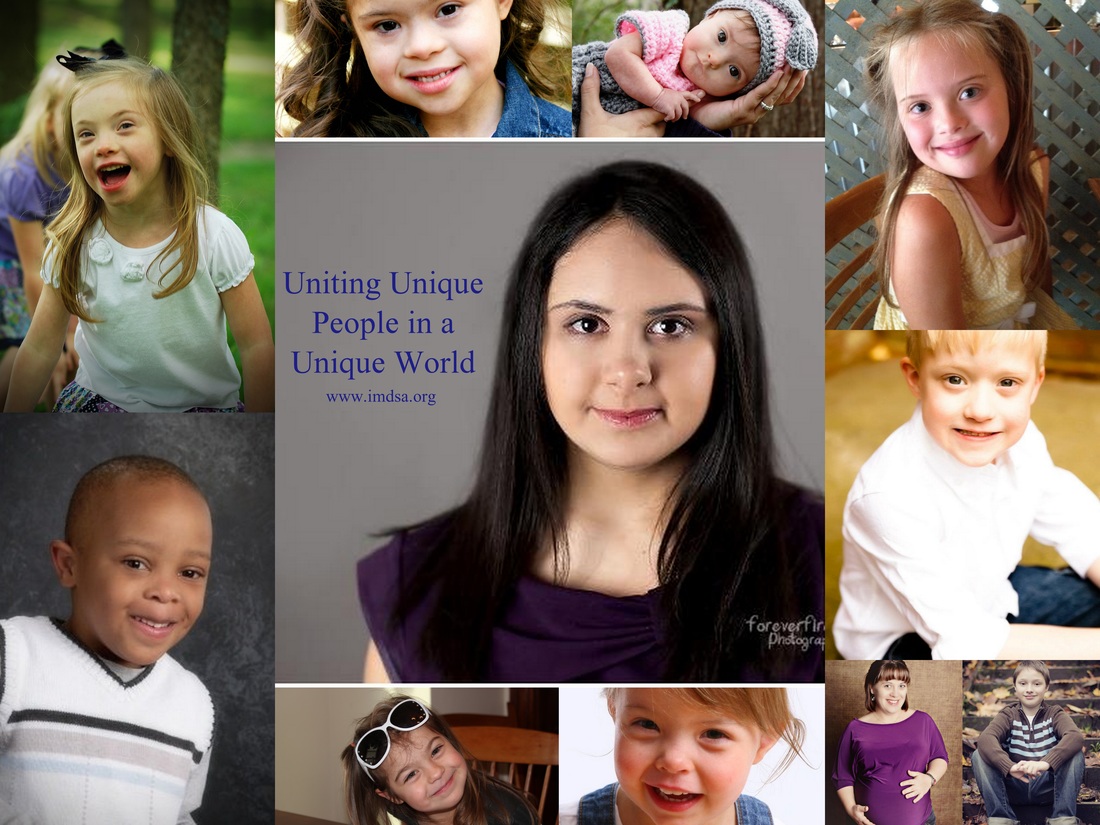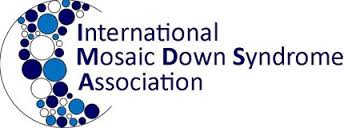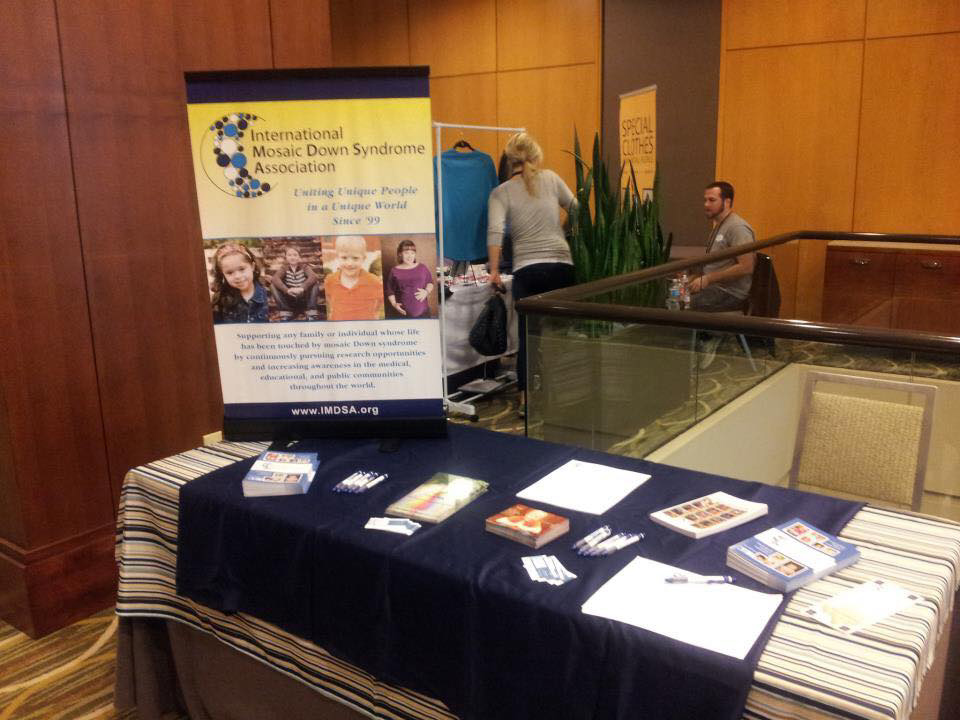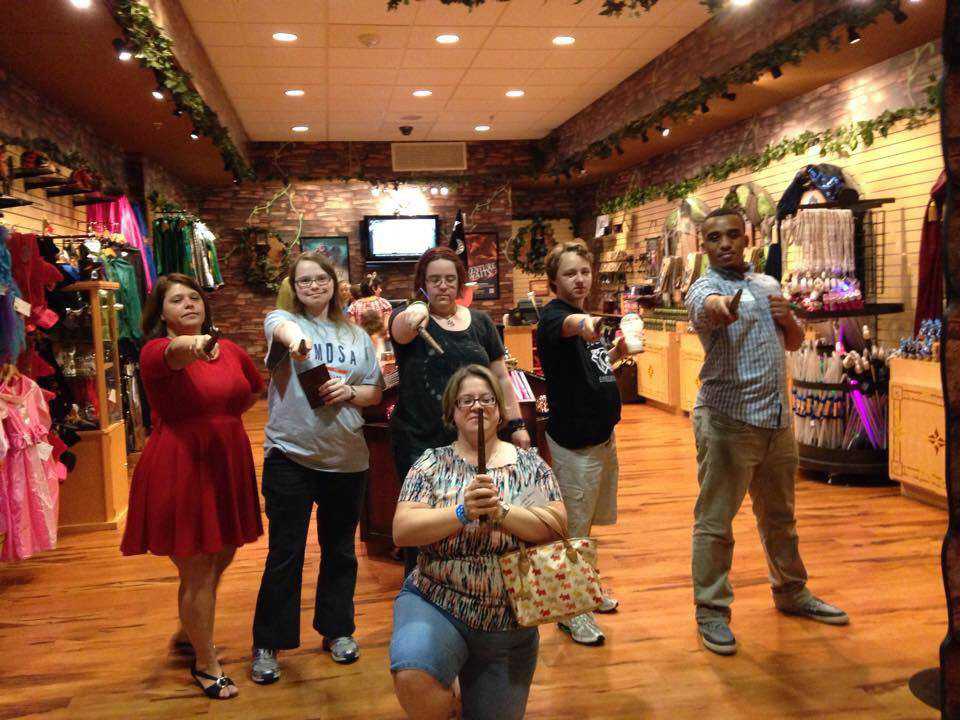By: Brandy Snow and Stephanie Holland
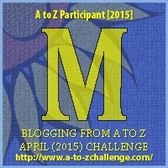 Have you heard of Mosaic Down syndrome but wondered what it was or how different it is from Trisomy 21?Has some one asked you if you can have “a little bit” of Down syndrome?
Have you heard of Mosaic Down syndrome but wondered what it was or how different it is from Trisomy 21?Has some one asked you if you can have “a little bit” of Down syndrome?
We learned about mosaicism at the 321eConference and we asked our friends at IMDSA to share some of that information with our community.President Brandy Snow tells us what mDs is and how IMDSA helps “Unite unique people in a unique world.”
“IMDSA is designed to support any family member or individual whose life has been touched by mosaic Down syndrome…”
And we do that in multiple ways. But before we get into that, let’s talk about what mosaic Down syndrome means. Awareness and education, after all, right?
What is mosaic Down syndrome?
Mosaic Down syndrome (or mosaicism of Trisomy 21) is defined by an individual that has a percentage of cells affected by an extra copy of the 21st chromosome and another percentage that is unaffected. Approximately 1 in 27,000 people are diagnosed with mosaic Down syndrome. Many individuals with mDs do not present with the typical physical characteristics of Down syndrome and may get a late diagnosis or none at all and live their entire lives not knowing they have Down syndrome. Dangerous, if you ask us, considering the potential health concerns that Down syndrome is often associated with.
What kind of support does IMDSA provide?
Some of the ways we provide support are direct and some of them are indirect. We’ll tell you about both.Directly, we provide multiple environments in the form social media. This allows a very spread-out group of individuals a platform to connect in, thus shrinking this big world we live in. People that otherwise might not ever meet another individual with mDs have the opportunity to connect with, learn from, and get to know on some level other parents and self advocates that share many of the same experiences, celebrations, and struggles. We also provide printed information to new families that connect with us. This is information that they can use for their own personal use as well as share with the many professionals in theirs or their child’s life. Add to the above, our Family Connect satellite groups. Parents that are skilled and informed in the realm of mDs can volunteer to be a point of contact for families in their particular state. They will often get together to have cookouts or play dates or whatever suits the majority.
Indirectly, we provide local Down syndrome associations with up-to-date and relevant information to pass along to the families touched by mDs that they serve. We do our best to serve as an additional resource to them by being available to answer questions or connect them with the right people that can answer their questions. Some of our best professional relationships are built out of these conversations. That’s when everyone wins. In building a partnership, the family’s needs are met by multiple capable and professional groups and have almost no chance of “slipping through the cracks”. By working together we have found that the family feels connected, protected and cared for. And that is what we love about partnering with other Down syndrome associations and why we feel those partnerships are so vital.Together, we CAN do so much.

